In our article “The February 28th Economic Blackout: Do Boycotts Really Work?,” we explored the nationwide movement that catalyzed a trend of rolling blackouts, looked at successful boycotts of the past including the Delano Grape Strike of the Central Valley, and mulled over the question of whether a boycott would stick it to the man.
This time we reflect on the 2025 scheduled blackout trend and explore a critical follow up question: what comes after the blackout?
Are Scheduled Economic Blackouts Effective?
What we have learned is that effective boycotts have: a clear goal, awareness and education, consistent mobilization, and economic impact.
Some examples of movements that were successful include the Montgomery Bus Boycotts, the Delano Grape Strikes, and the South African Apartheid Resistance. Each had a clear goal, prioritized awareness and education, impacted the economy, and lasted, 1, 5, and 46 years respectively. Success was determined when the specific goal was achieved.
February’s event was a response to corporations backing out of DEI initiatives. Around the same time, the "Tesla Takedown" boycott and protests were organized by activists to make it clear that Elon Musk’s government involvement would not be tolerated.
The trend in boycotts this year begs the questions- have they been effective?
Scheduled boycotts are essentially ineffective long term. Economist Jonathan Ernest of Case Western Reserve University explains that people engage in a pattern of consumer behavior called "temporal spending shifts."
“If you were going to purchase an item on the day of the boycott, you might just shop early or delay your purchase until after the boycott rather than forego the purchase altogether,” Ernest told a local news source in Cleveland.
Additionally, research has shown that consumer boycott participation goes down with time. One study found that as emotion attached to the original perceived wrong that a company has demonstrated wanes, factors such as cost, time, quality, and good customer service prevail and people return to their old shopping habits.
Essentially, the temporal spending shifts characteristic of a scheduled boycott are imitating an existing behavior that companies anticipate.
Furthermore, boycotts are increasingly met with anti-boycotts or "buycotts" which, as the name implies, are when consumers intentionally increase their shopping at companies that are the target of boycotts, offsetting the effects of the boycott.
Boycotts & Stocks
The stock market reflects investors' expectations about the future performance and profitability of publicly traded companies, as well as overall market conditions. Often, investors in public companies (which are most of those that are targeted) will wait it out in response to a boycott.
Monitoring stock performance can provide insights into the effectiveness of a boycott. A significant drop in stock prices, especially following extensive media coverage, often signals that a boycott is having an impact. However, the relationship is complex and influenced by various factors, including consumer habits and the strength of the organizing coalition.
Even for the lay person (hi, it's me, I am not an economist) a visual analysis of market trends over the past year, 5 years, and of all time (that the corp. has existed), it is clear that there are chutes and ladders.
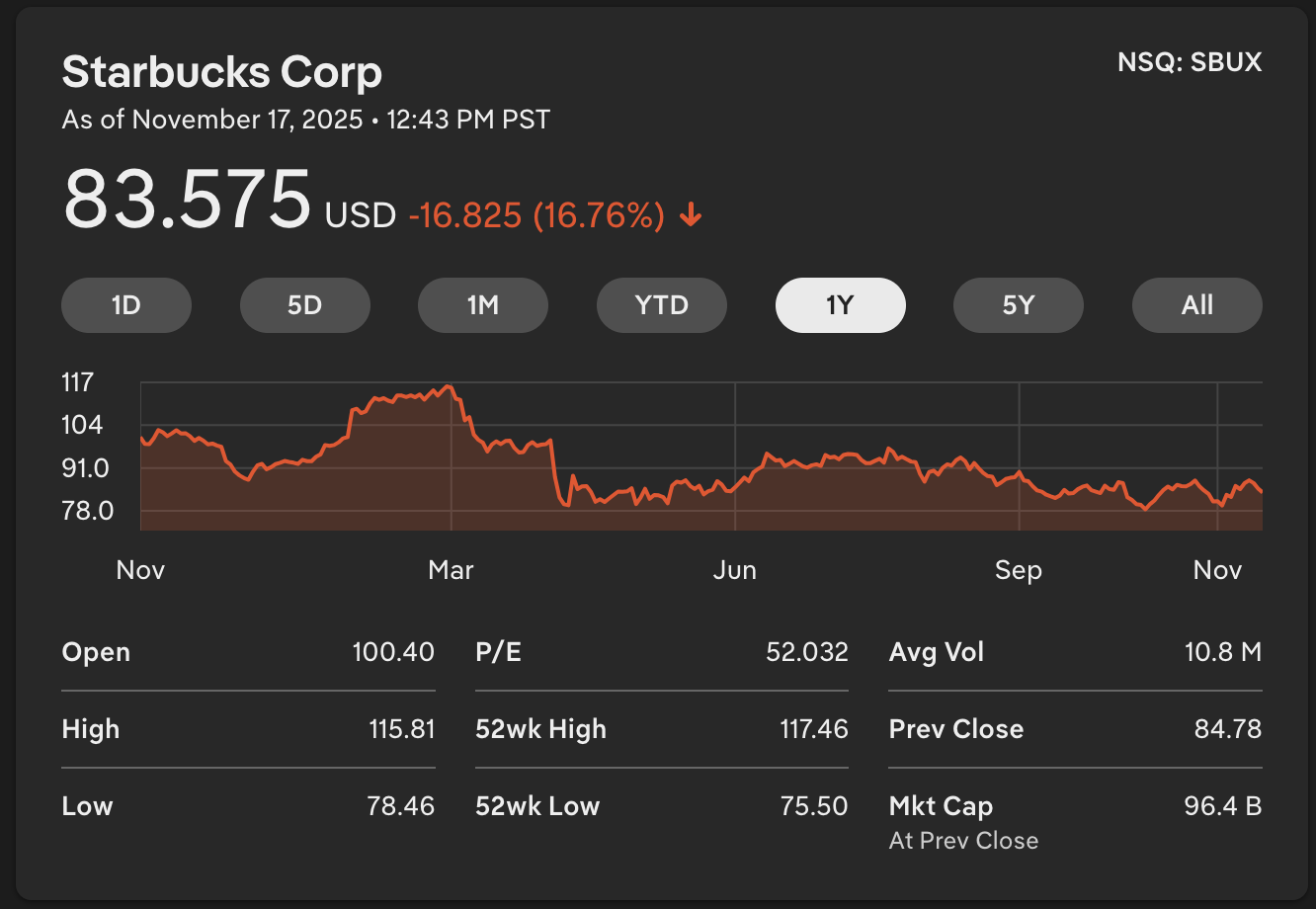
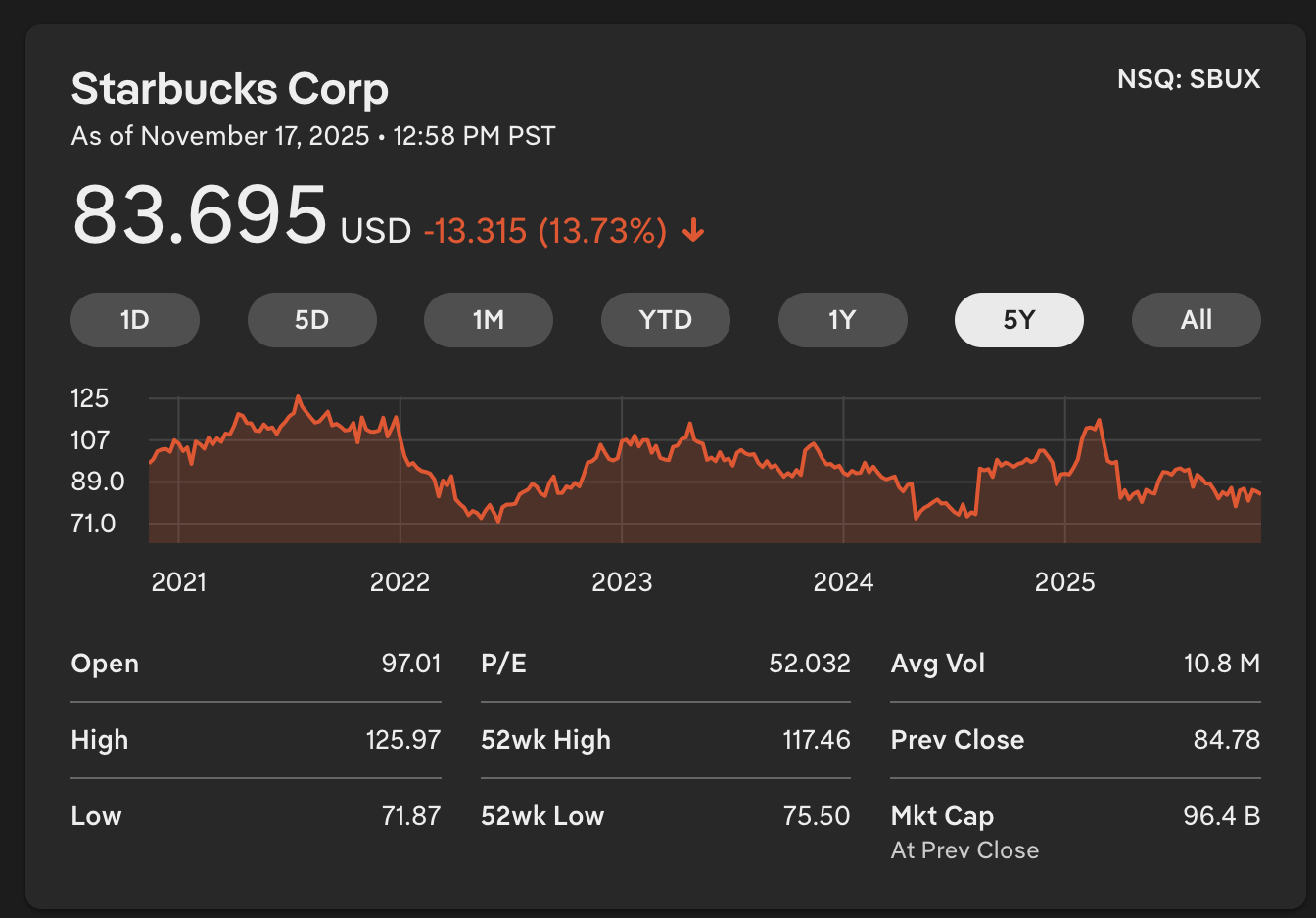
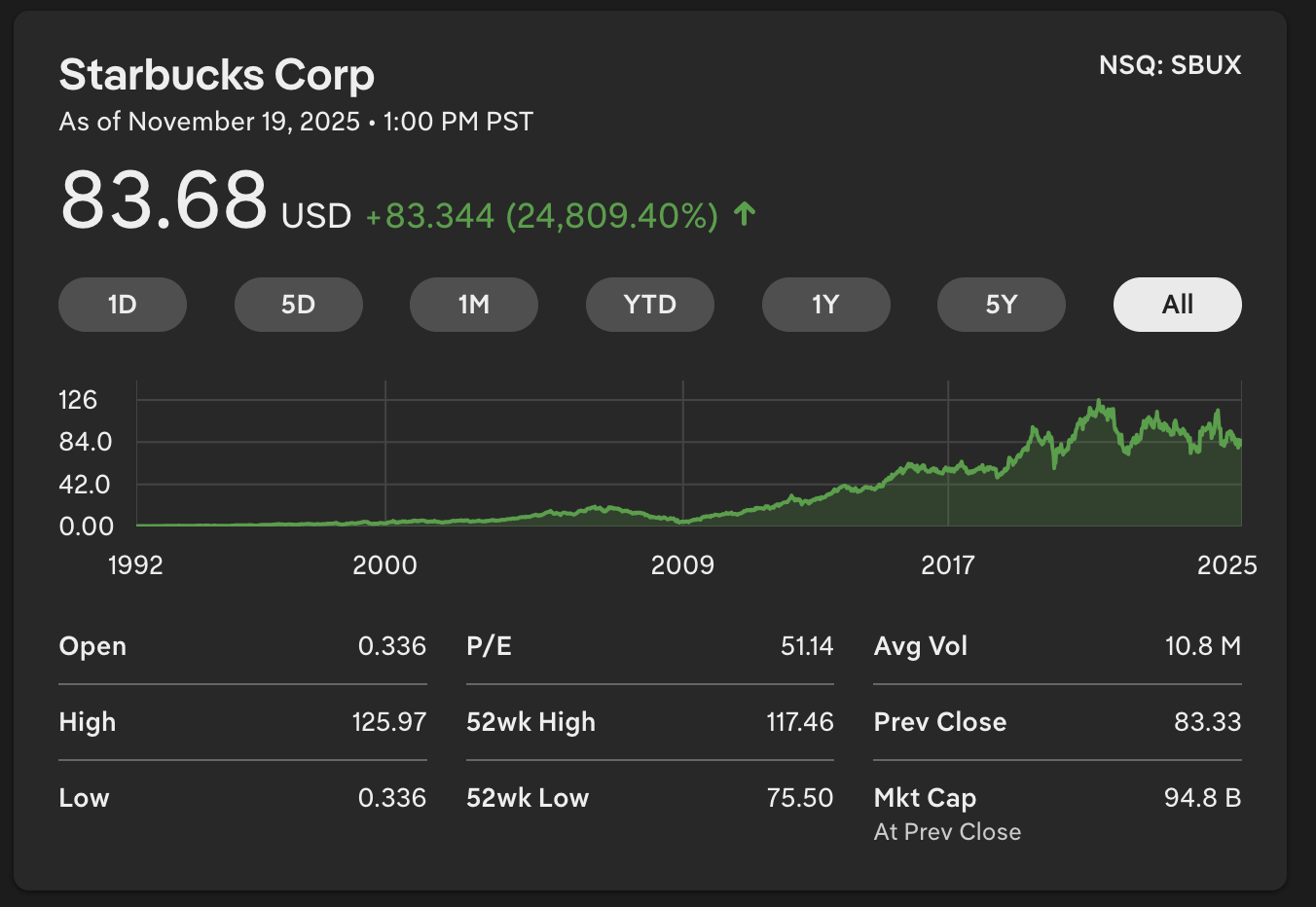
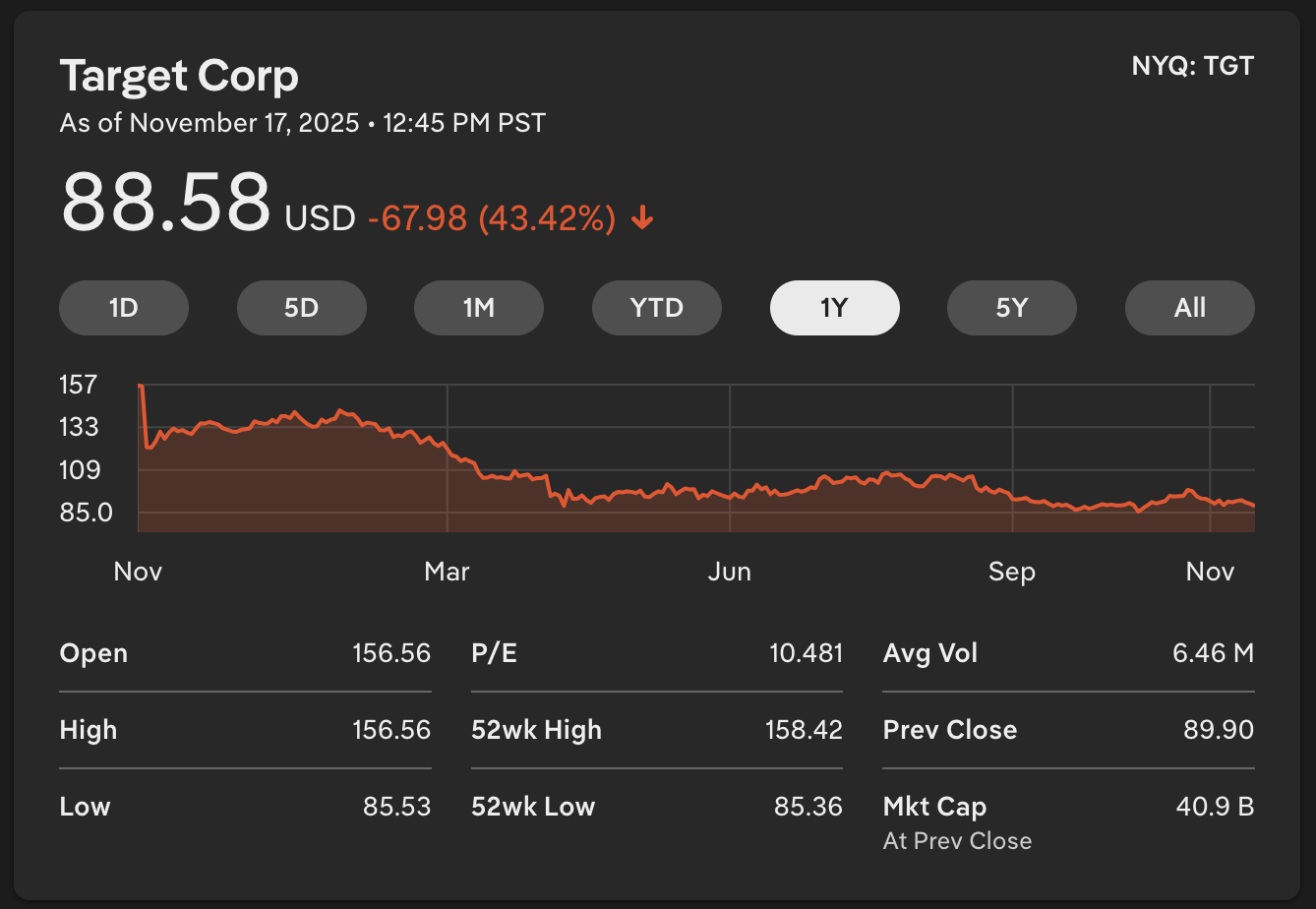
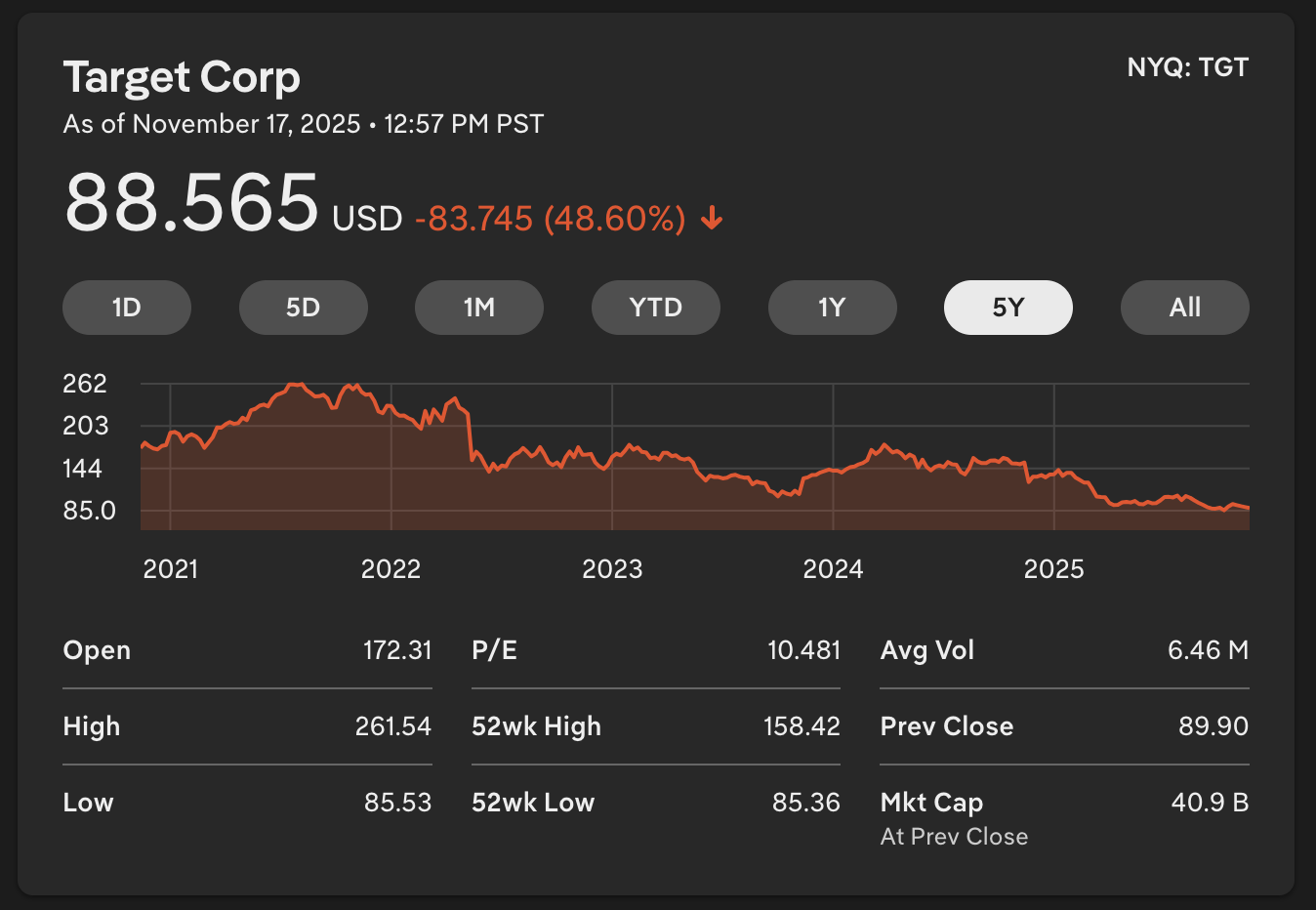
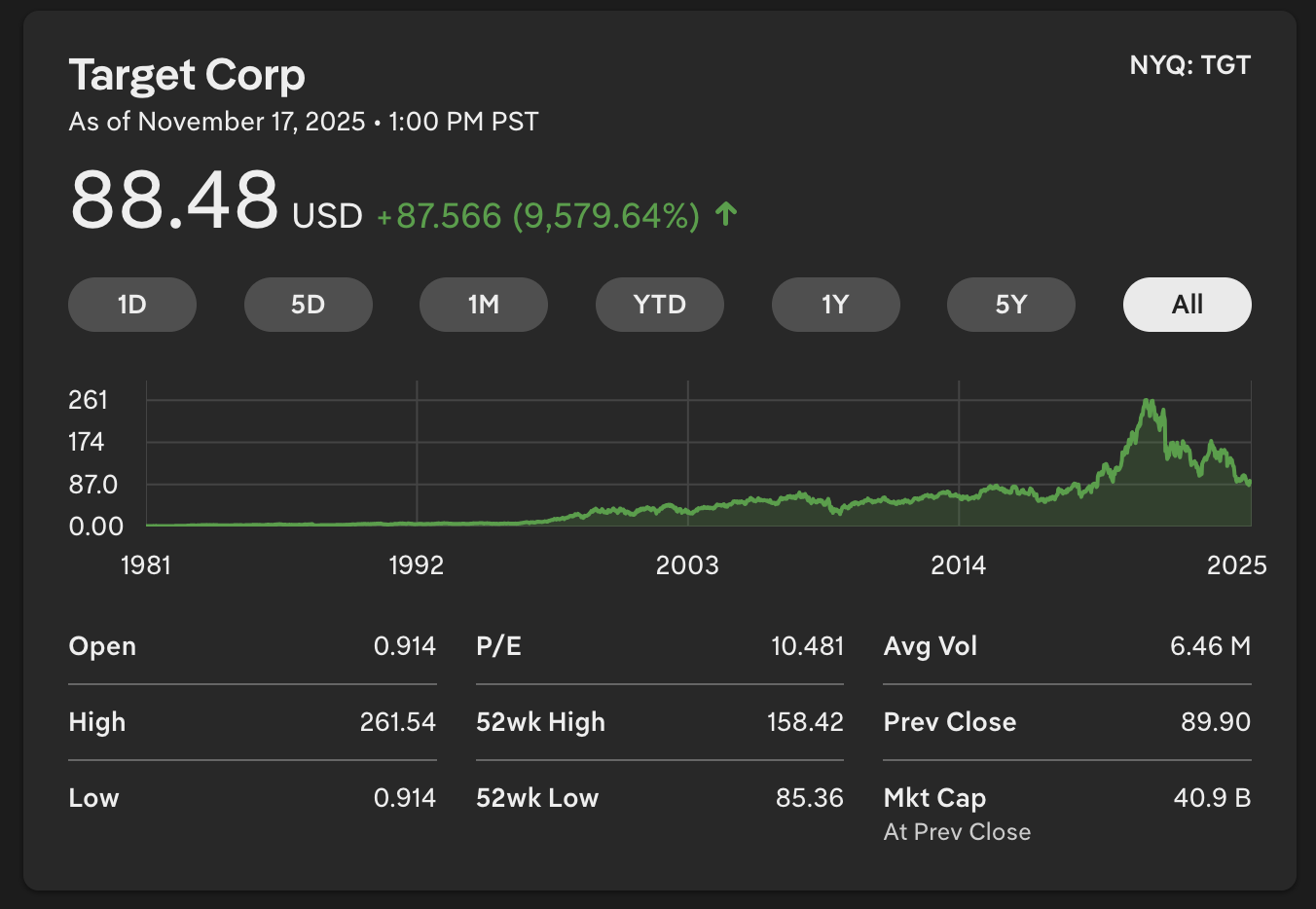
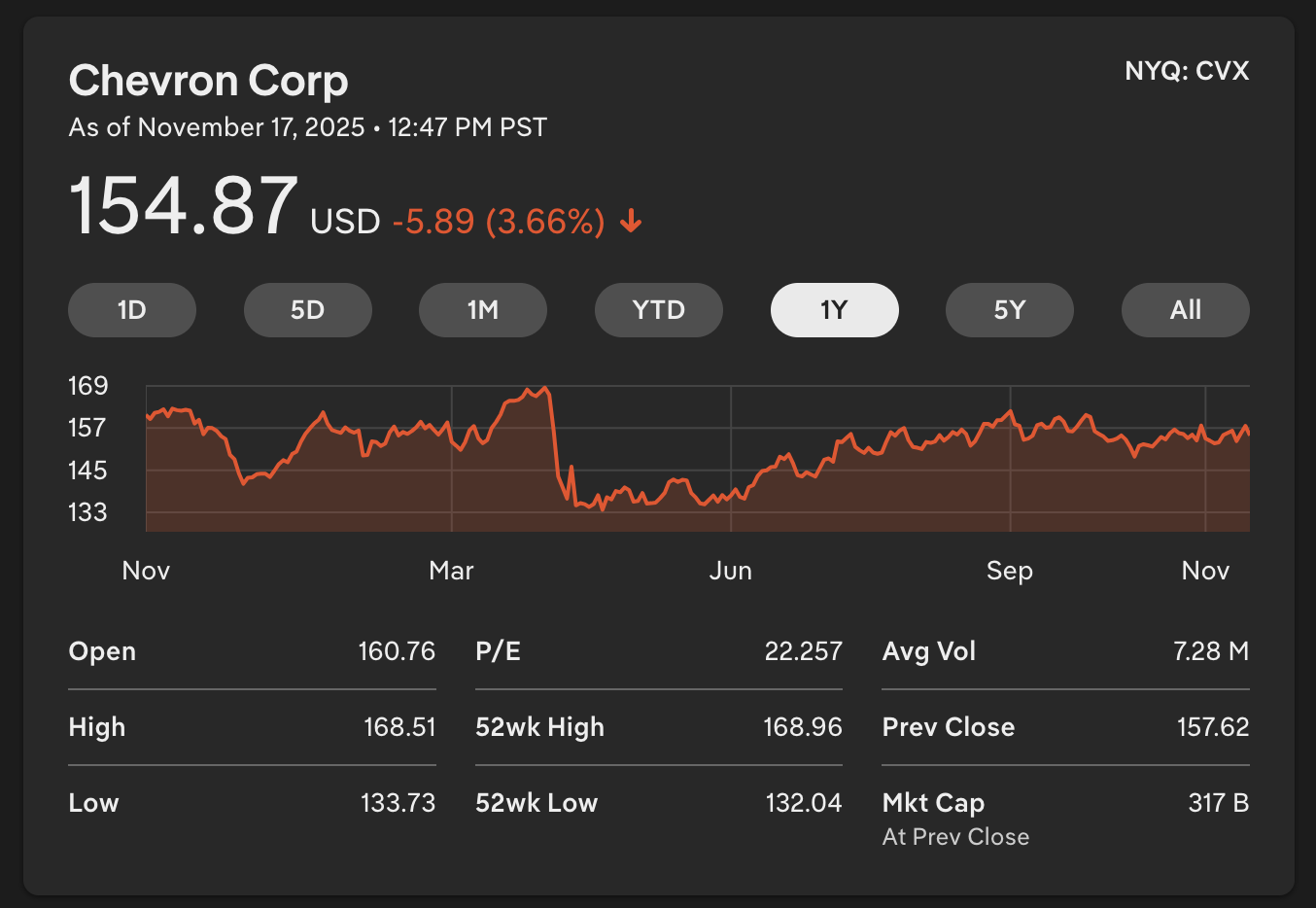
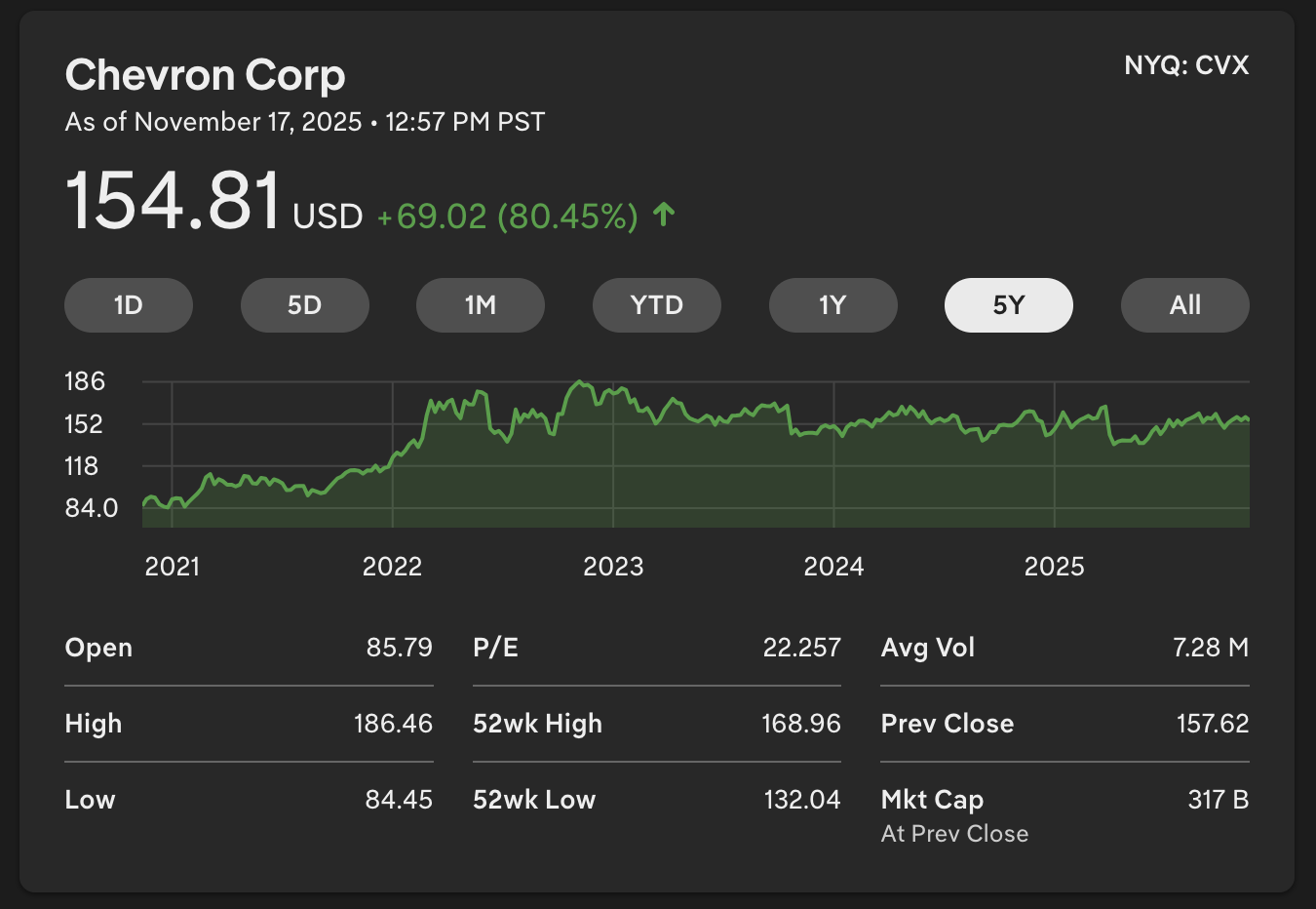
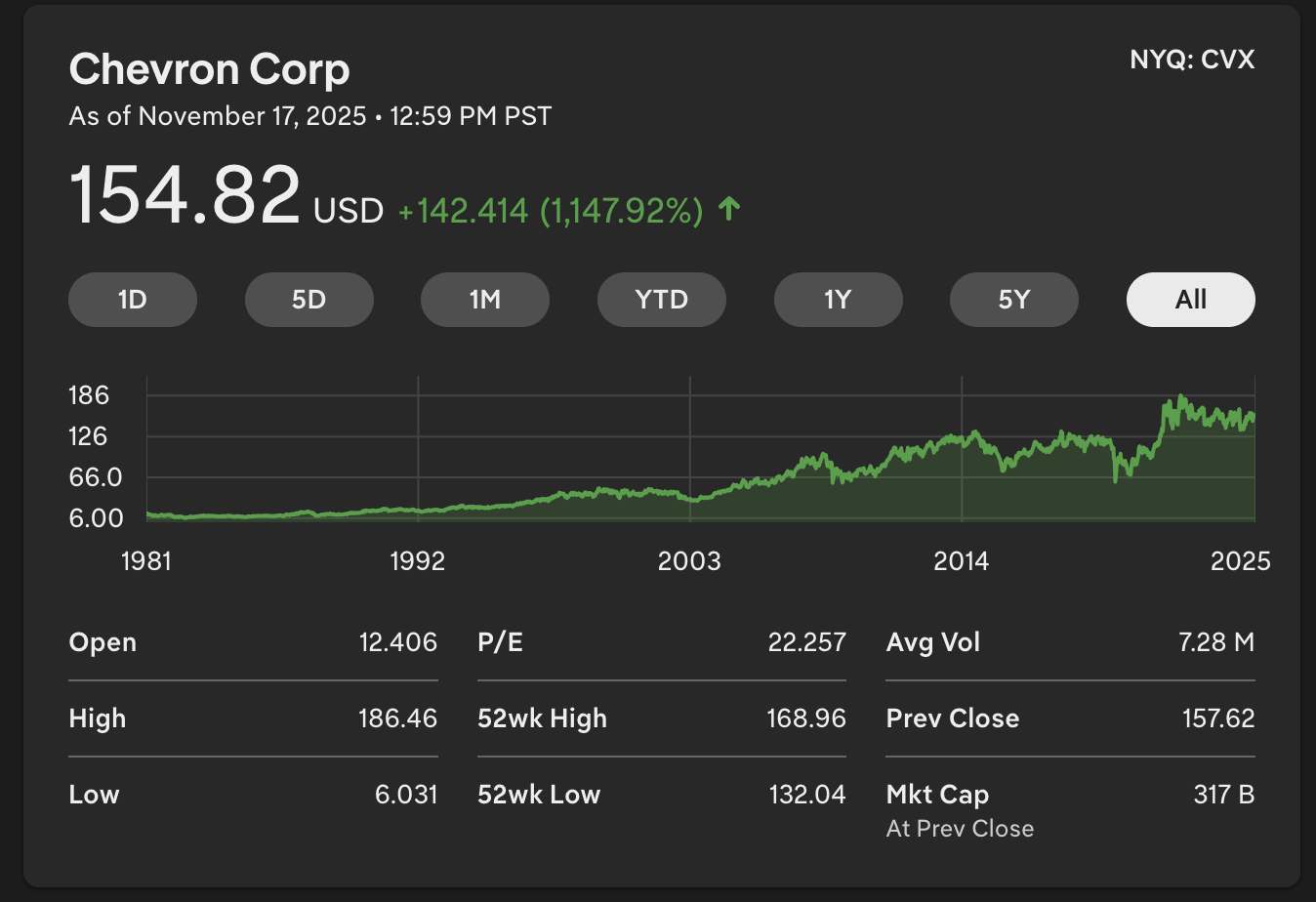
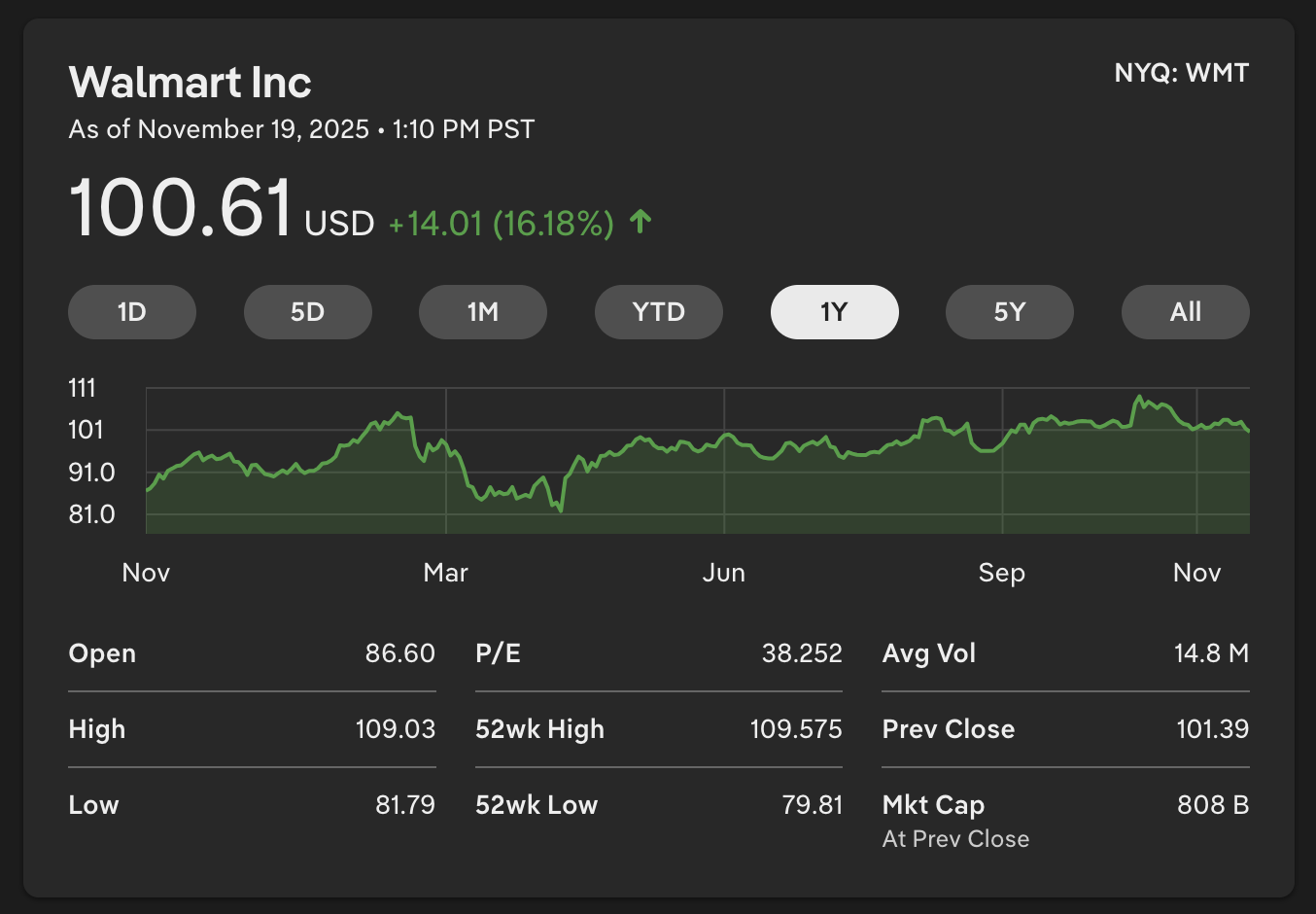
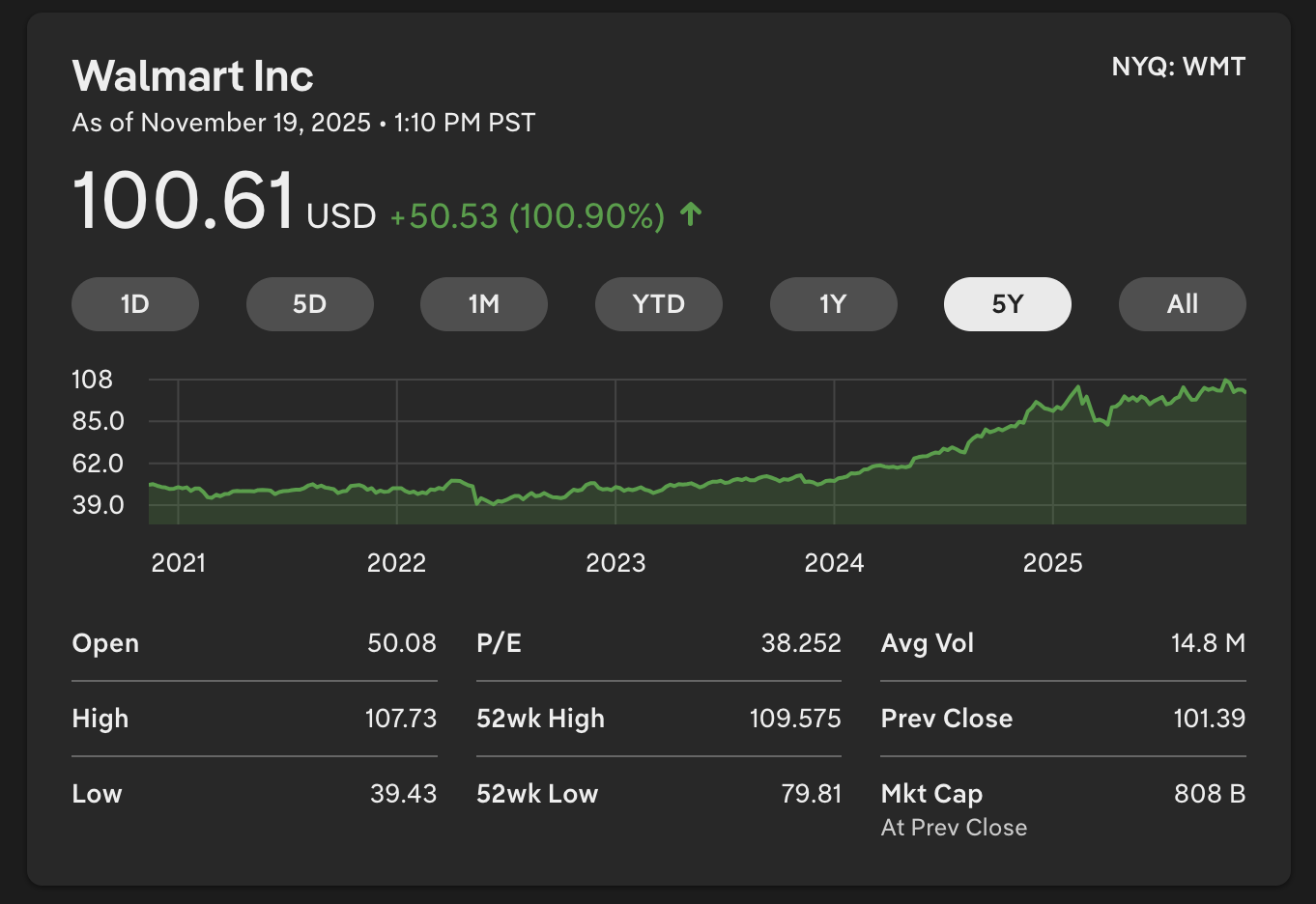
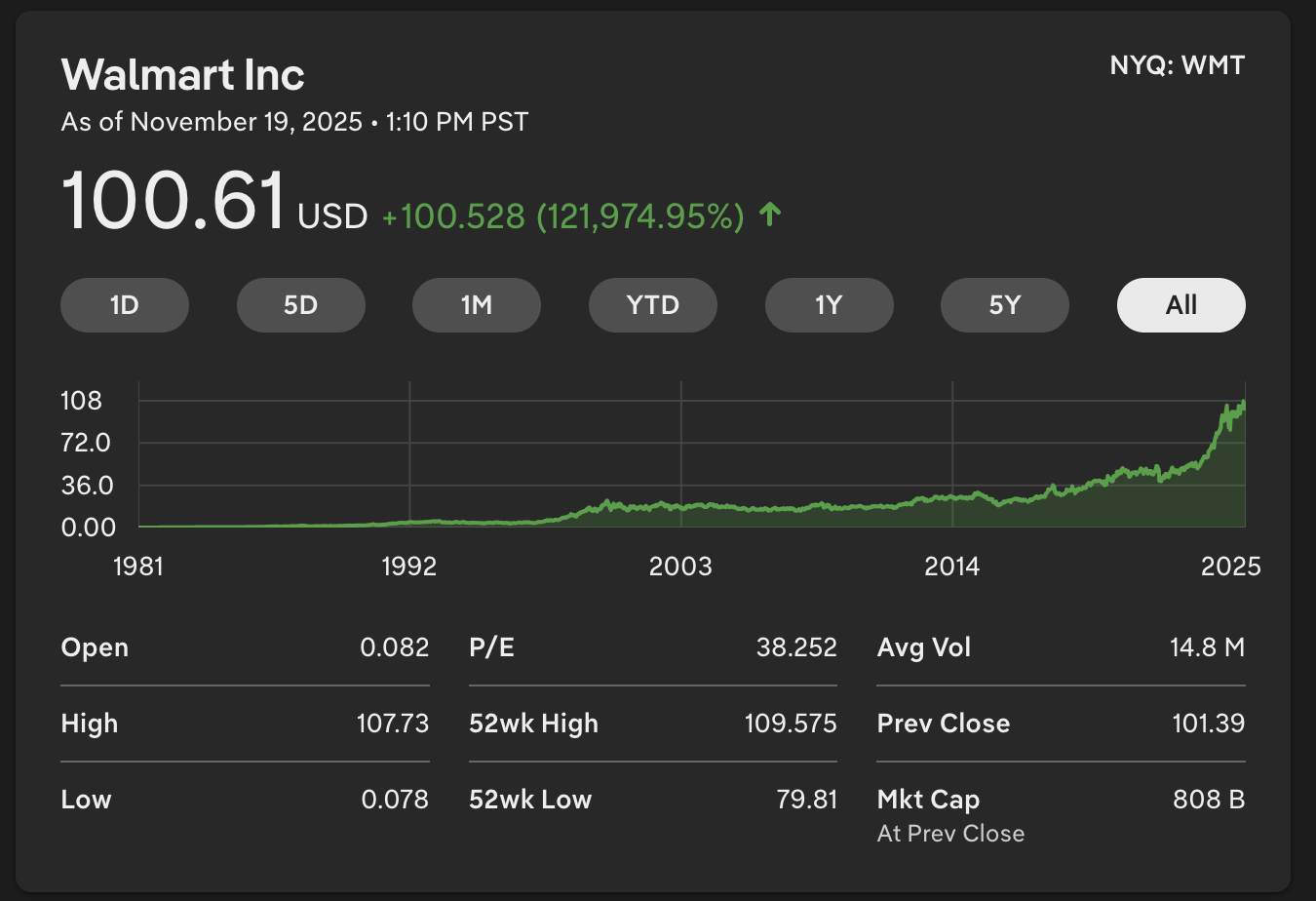
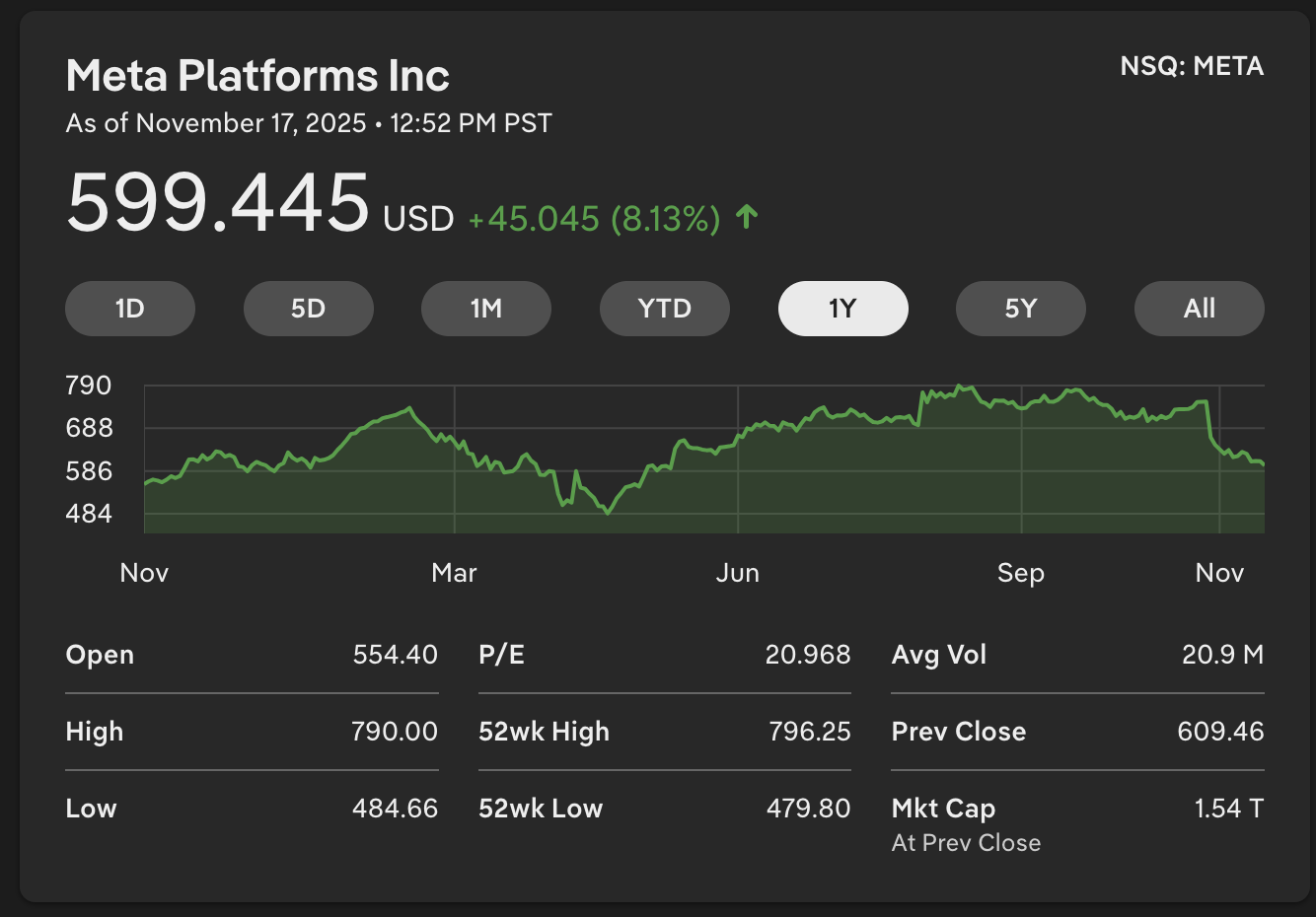
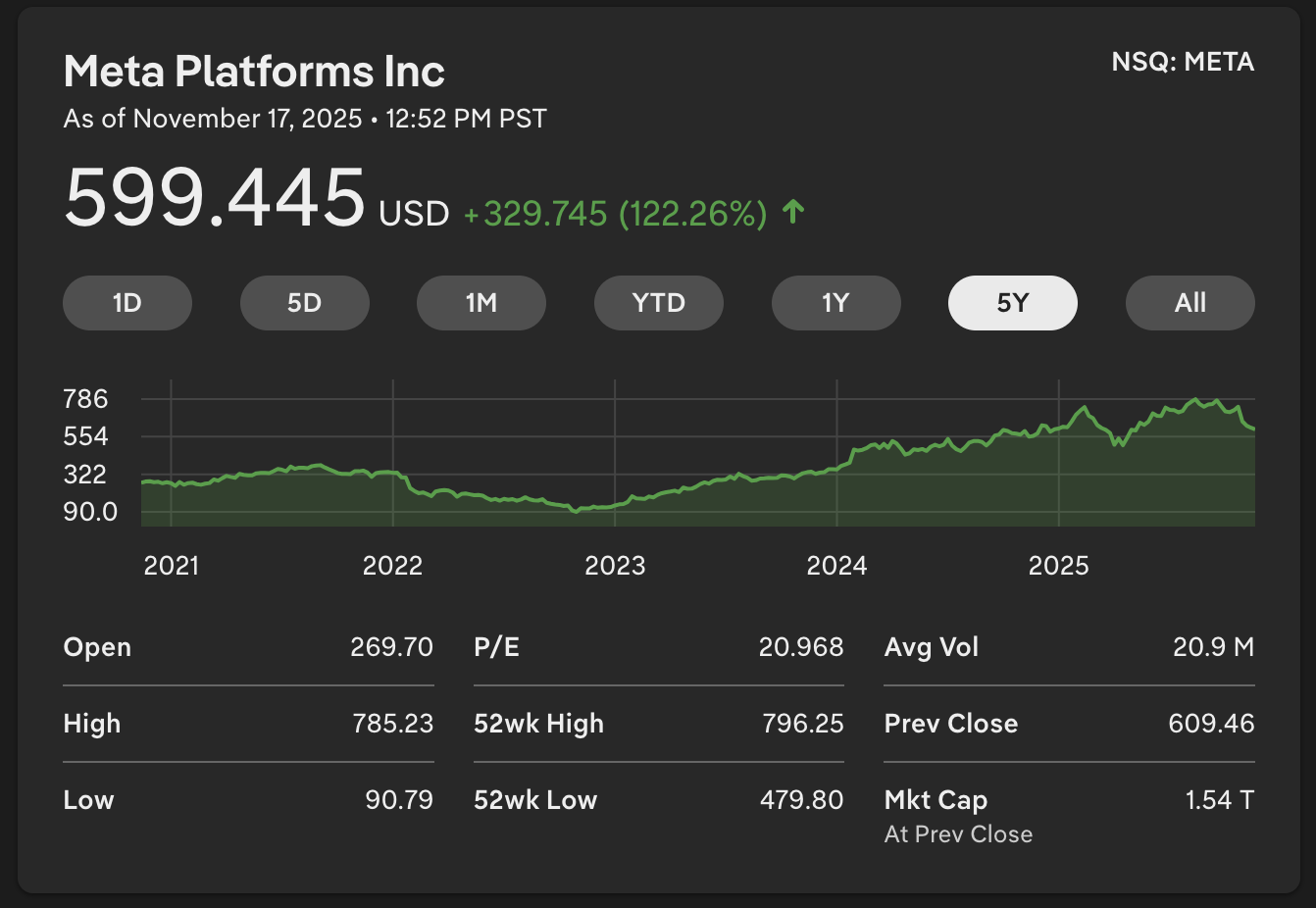
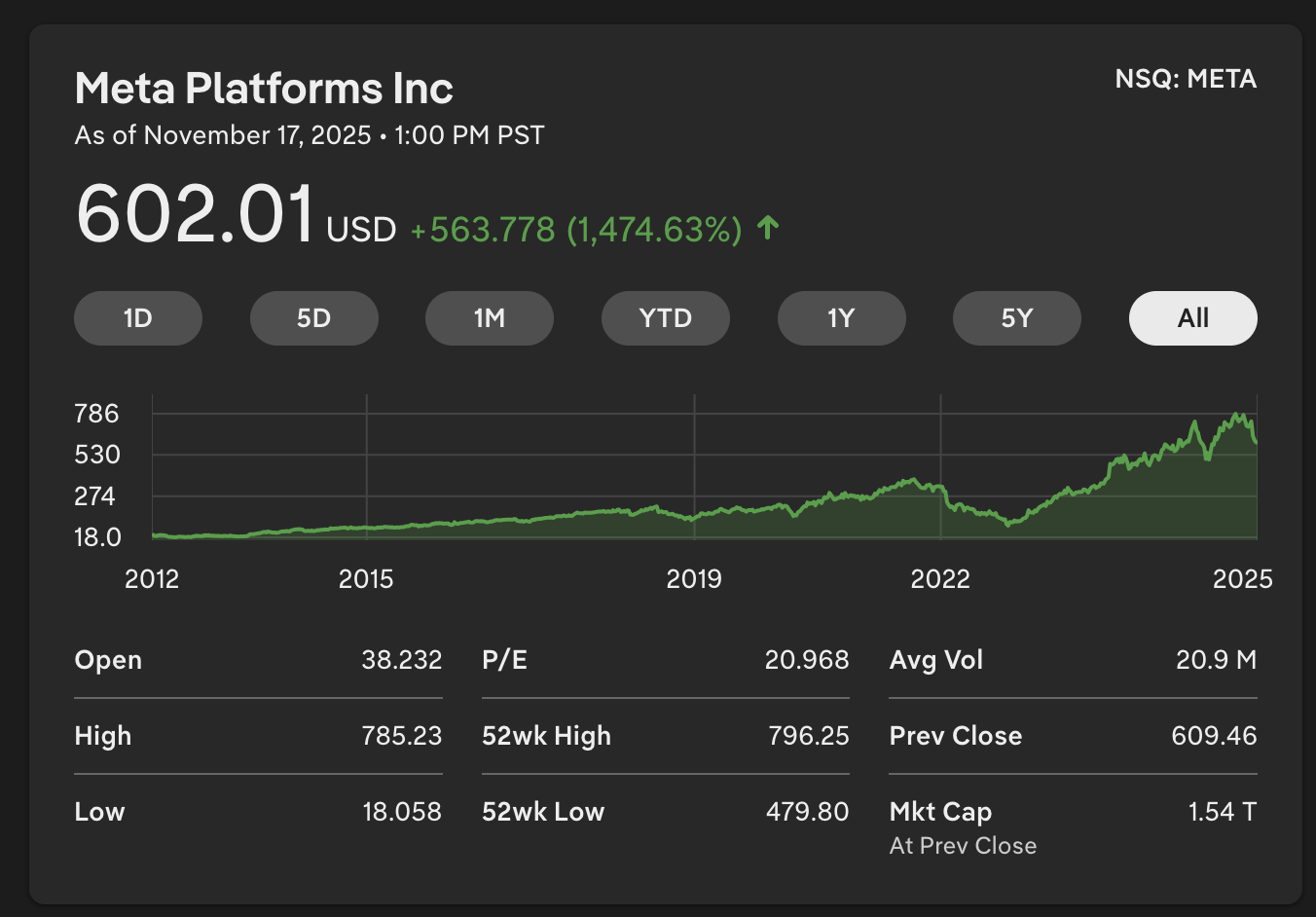
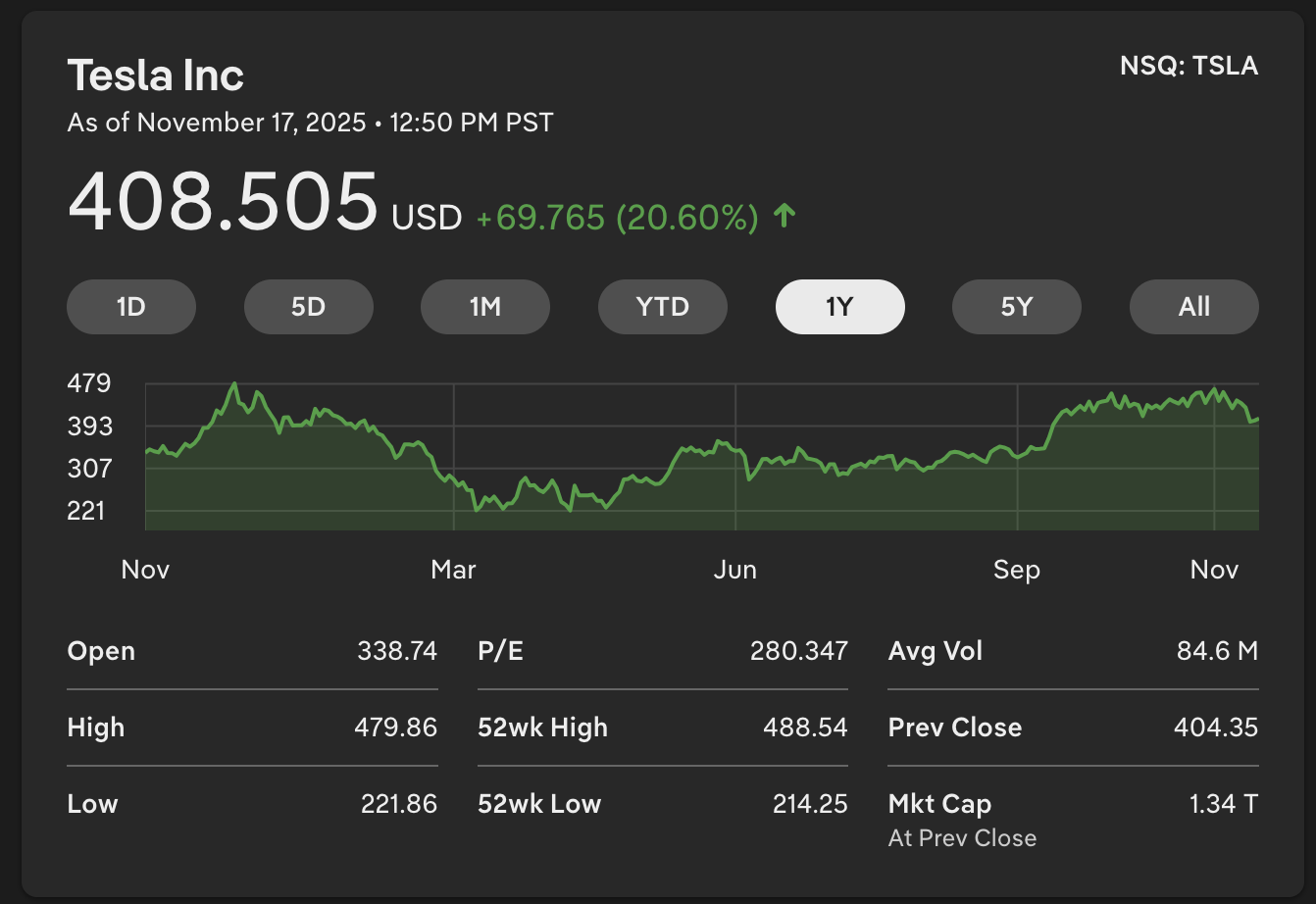
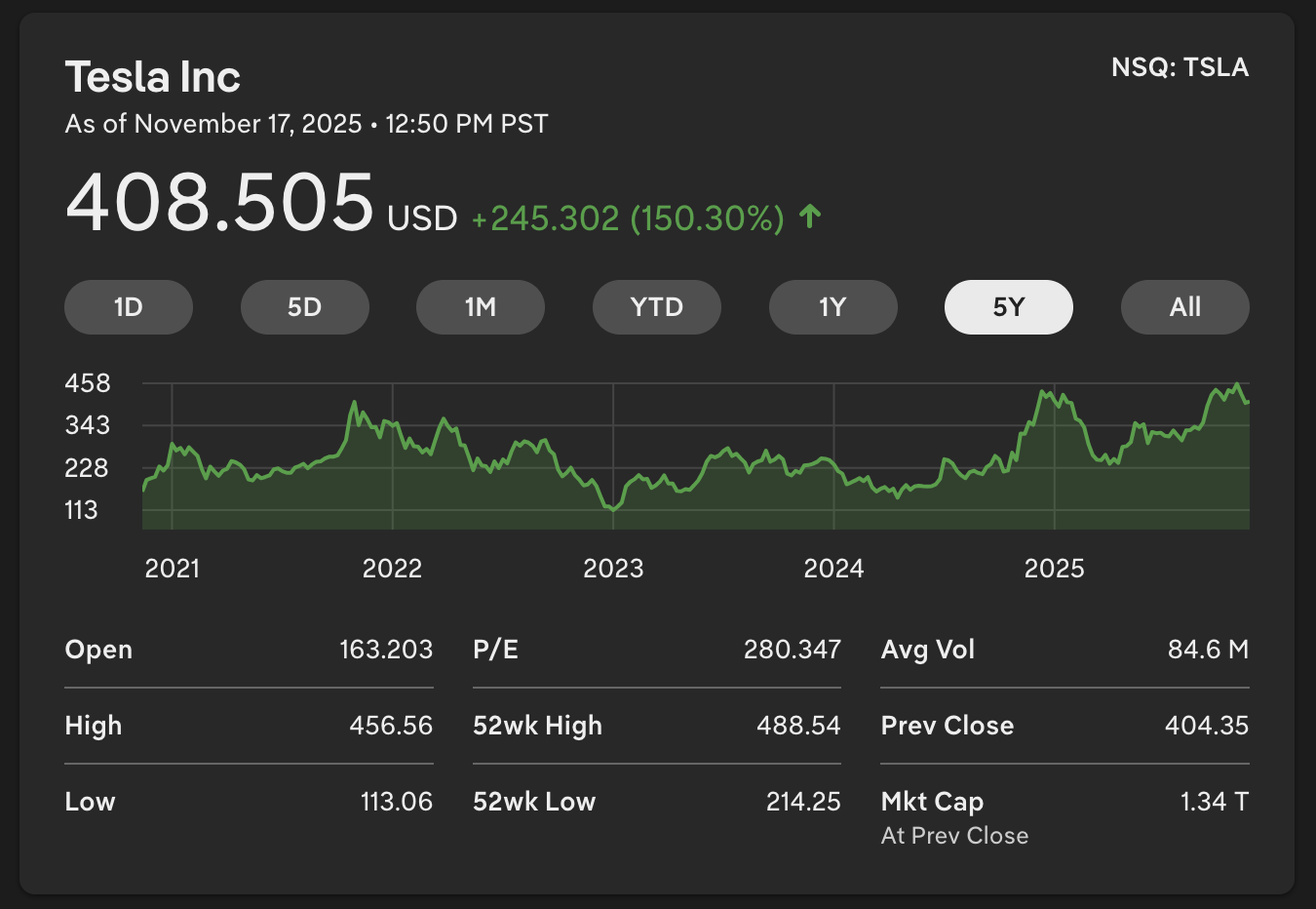
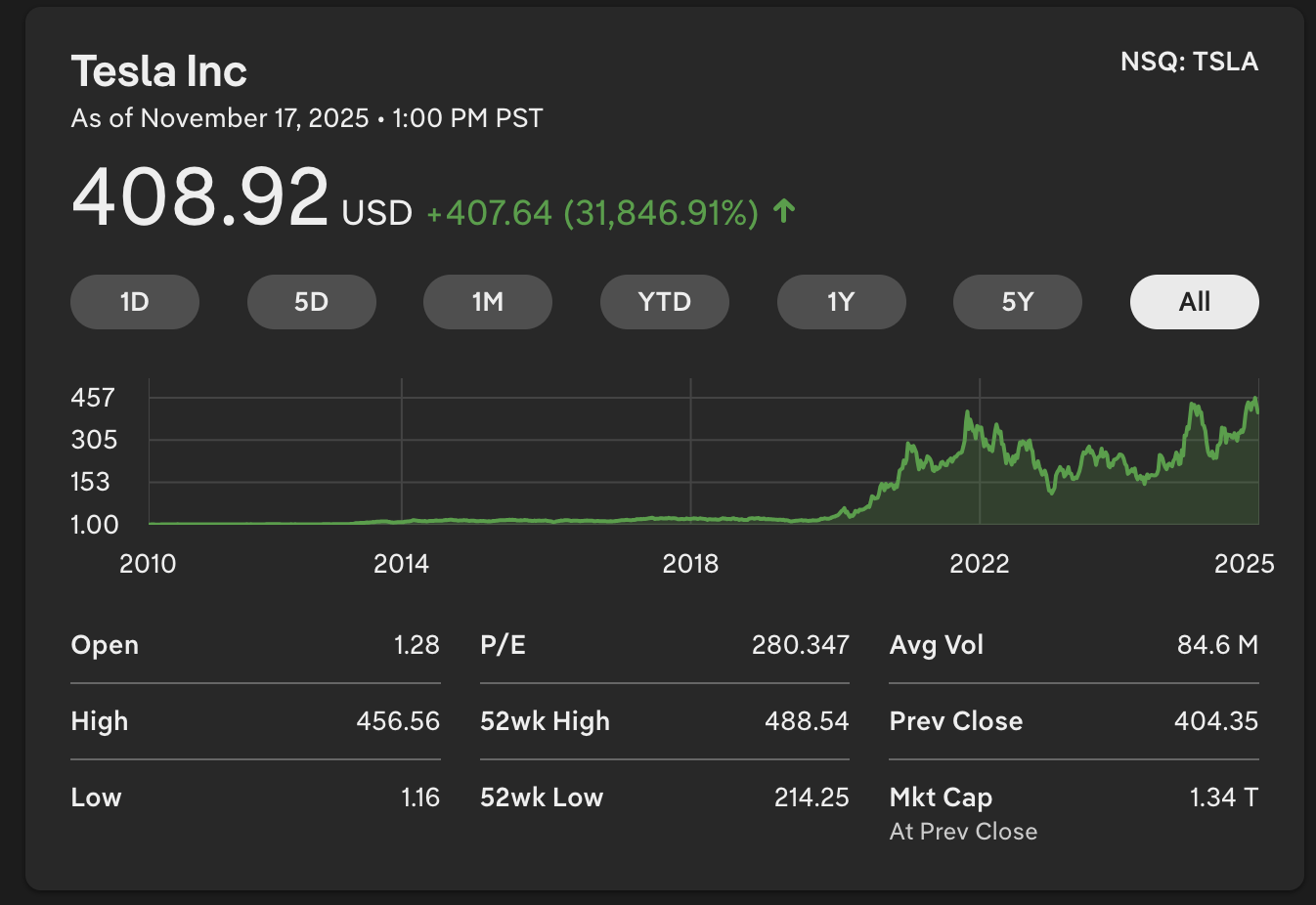
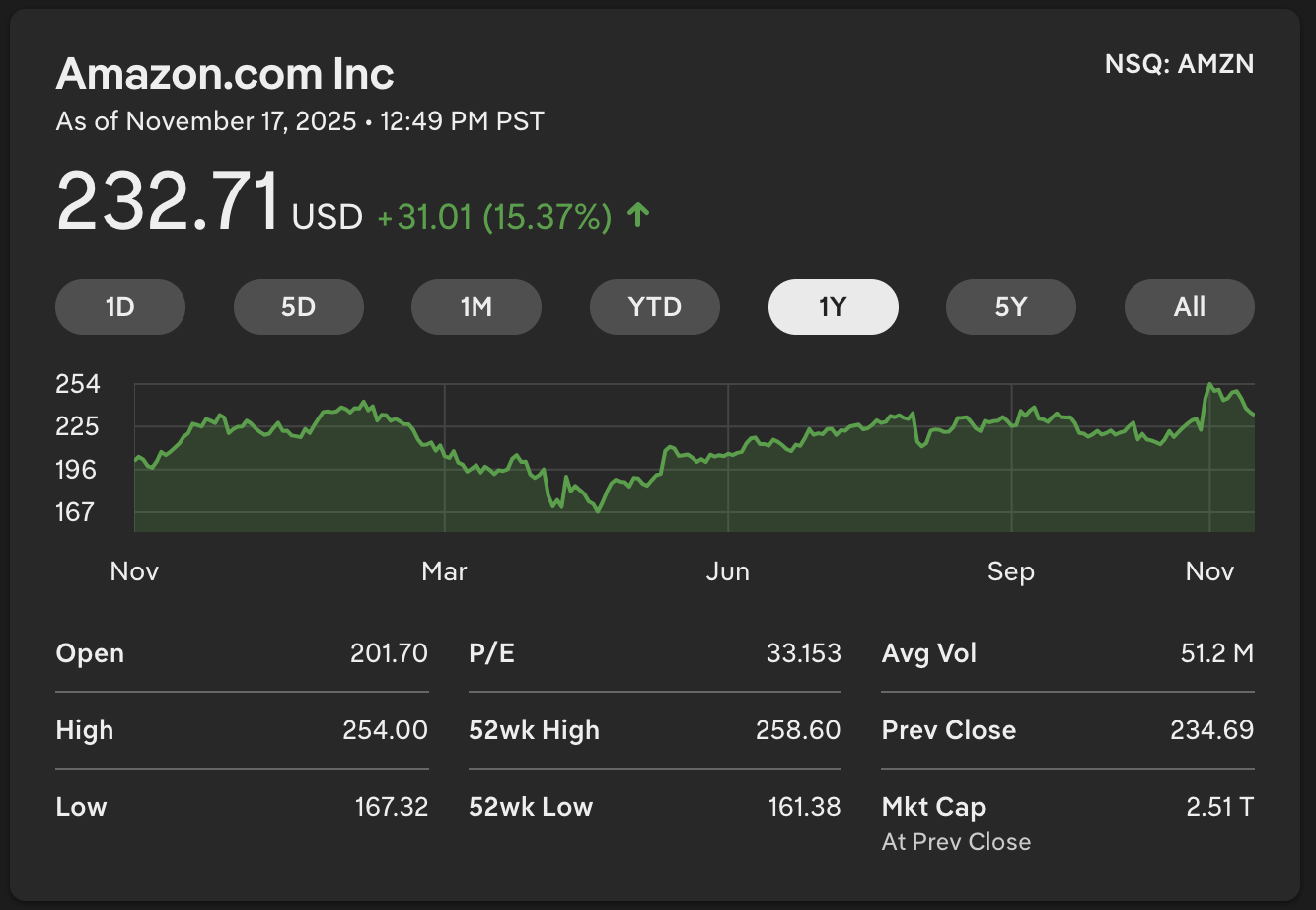
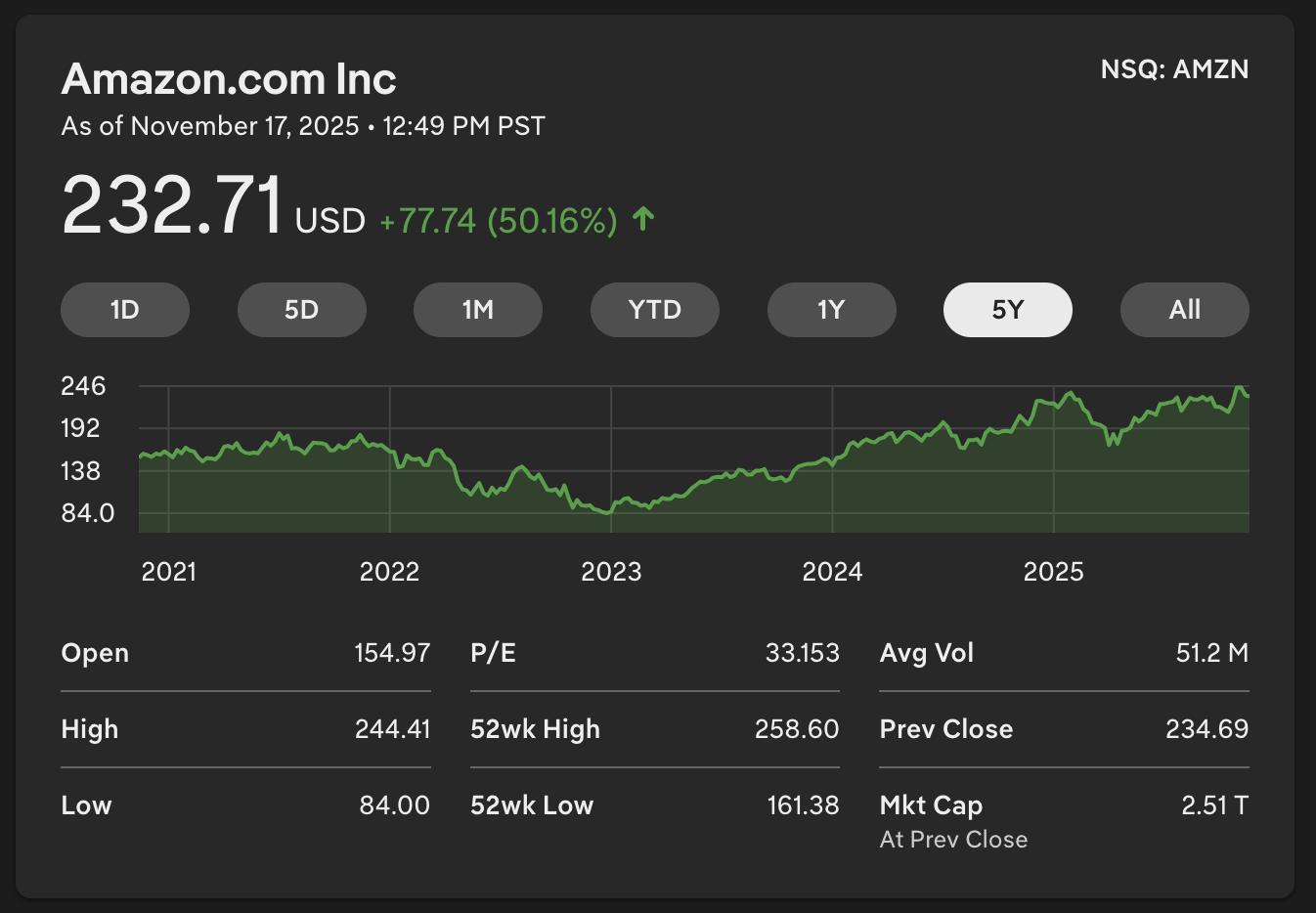
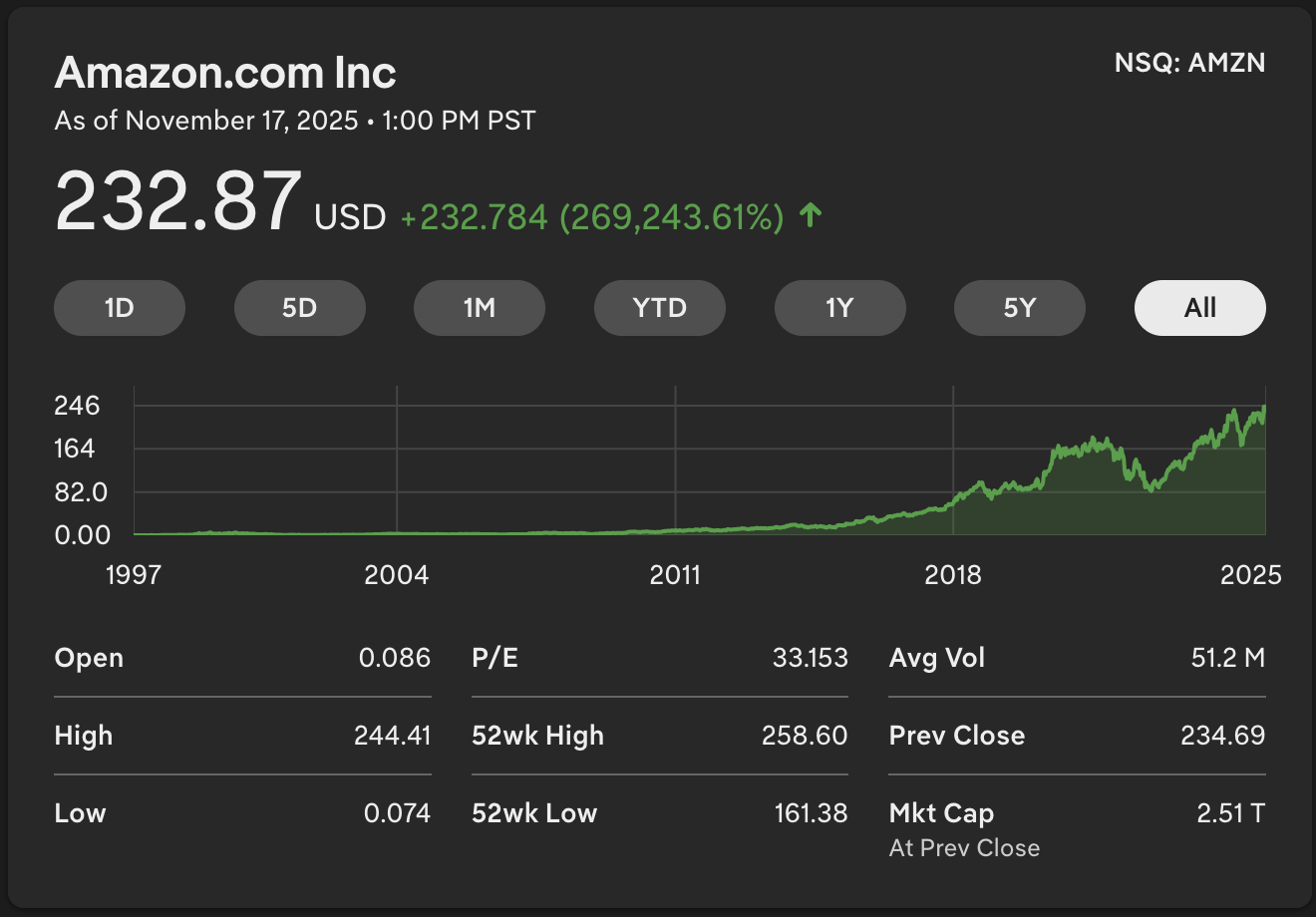
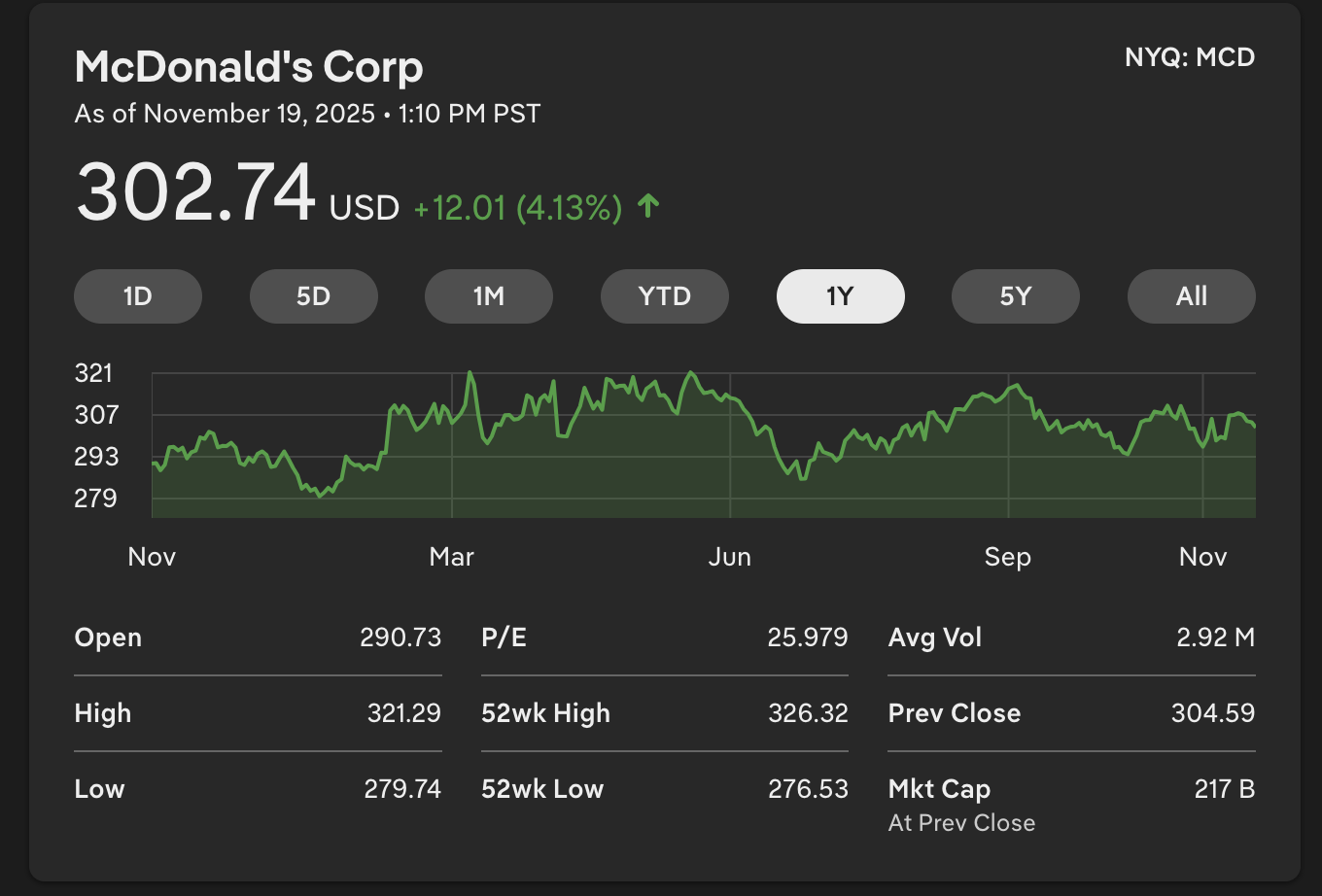
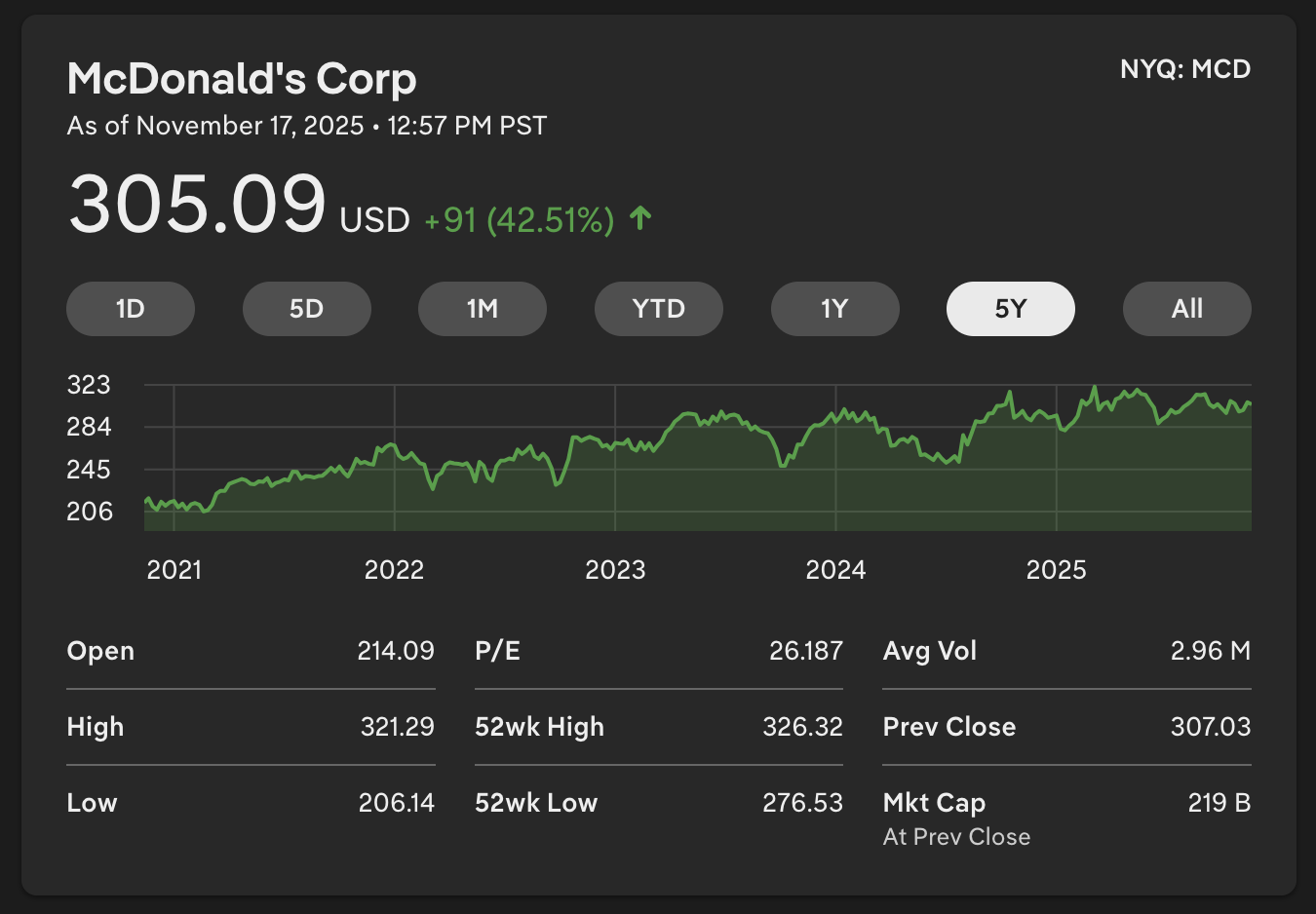
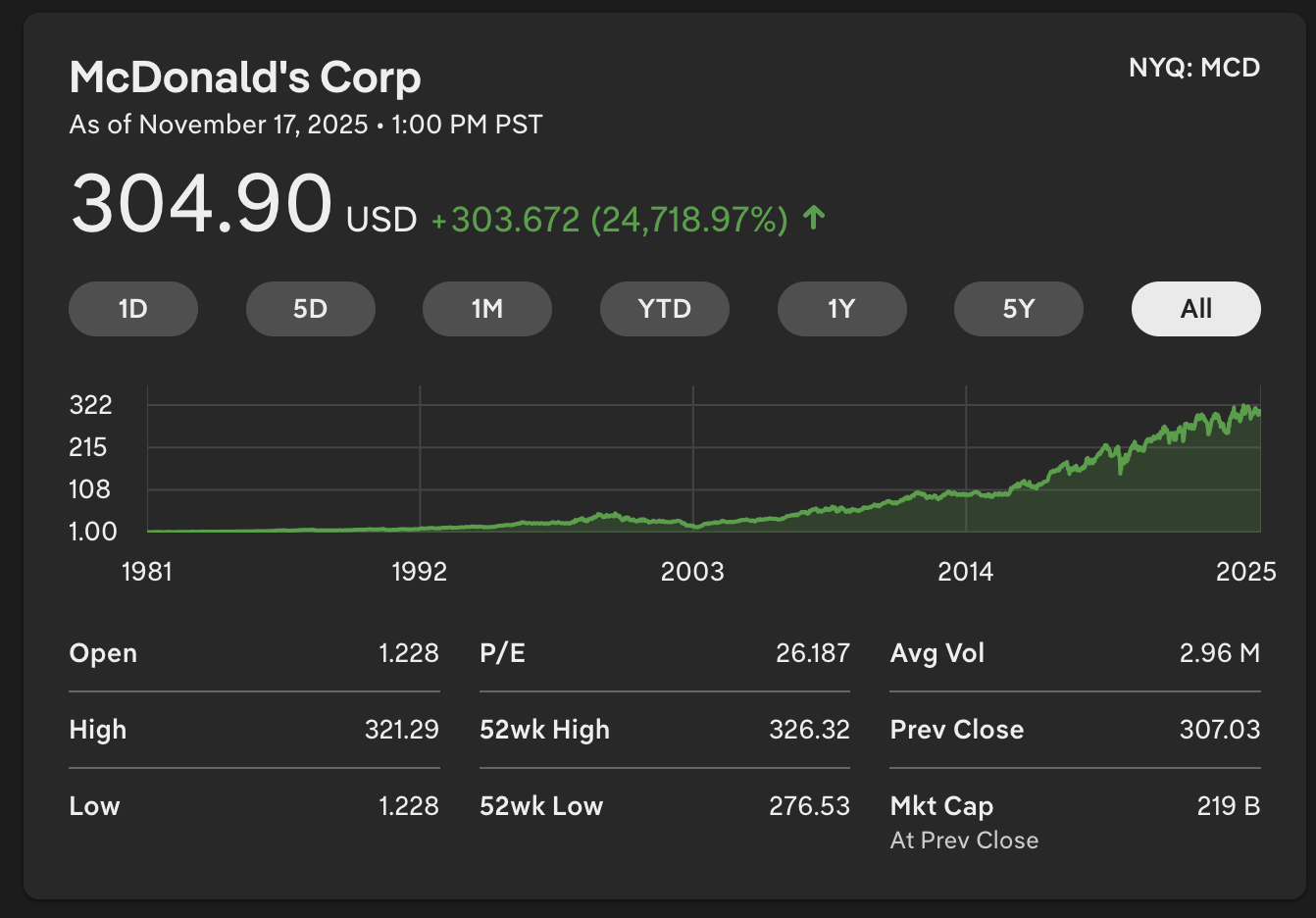
The overall roller coaster of many corps may be attributed in some part to boycotts however, there are several factors that influence the market and it is not a reliable way to determine the effects of a boycott. Rather it can be a helpful way to bring perspective to how dips, even large ones, are an inevitable part of the market.
Should you participate in Blackout Friday?
Absolutely. & then don't stop.
Blackout the System, one of the major groups pushing the boycott, echoes the solution that countless scholars agree is the formula for change.
"We divest from 'the system' while building a civic force and parallel systems that rival the rigged system… By rebuilding local systems—economic, social, and cultural—we become less dependent on corporations and more resilient to their exploitation. The stronger our communities, the weaker the system becomes," they declare on their website.
This will not happen overnight, or in a week.
"Revolution is not a one time event." -Audre Lorde
Remember- successful boycotts need: a clear goal, awareness and education, consistent mobilization, and economic impact.
The Boycott Divest and Sanction (BDS) movement is in its 20th year and is modeled after the anti-apartheid movement.
BDS is "a Palestinian-led movement for freedom, justice and equality. BDS upholds the simple principle that Palestinians are entitled to the same rights as the rest of humanity."
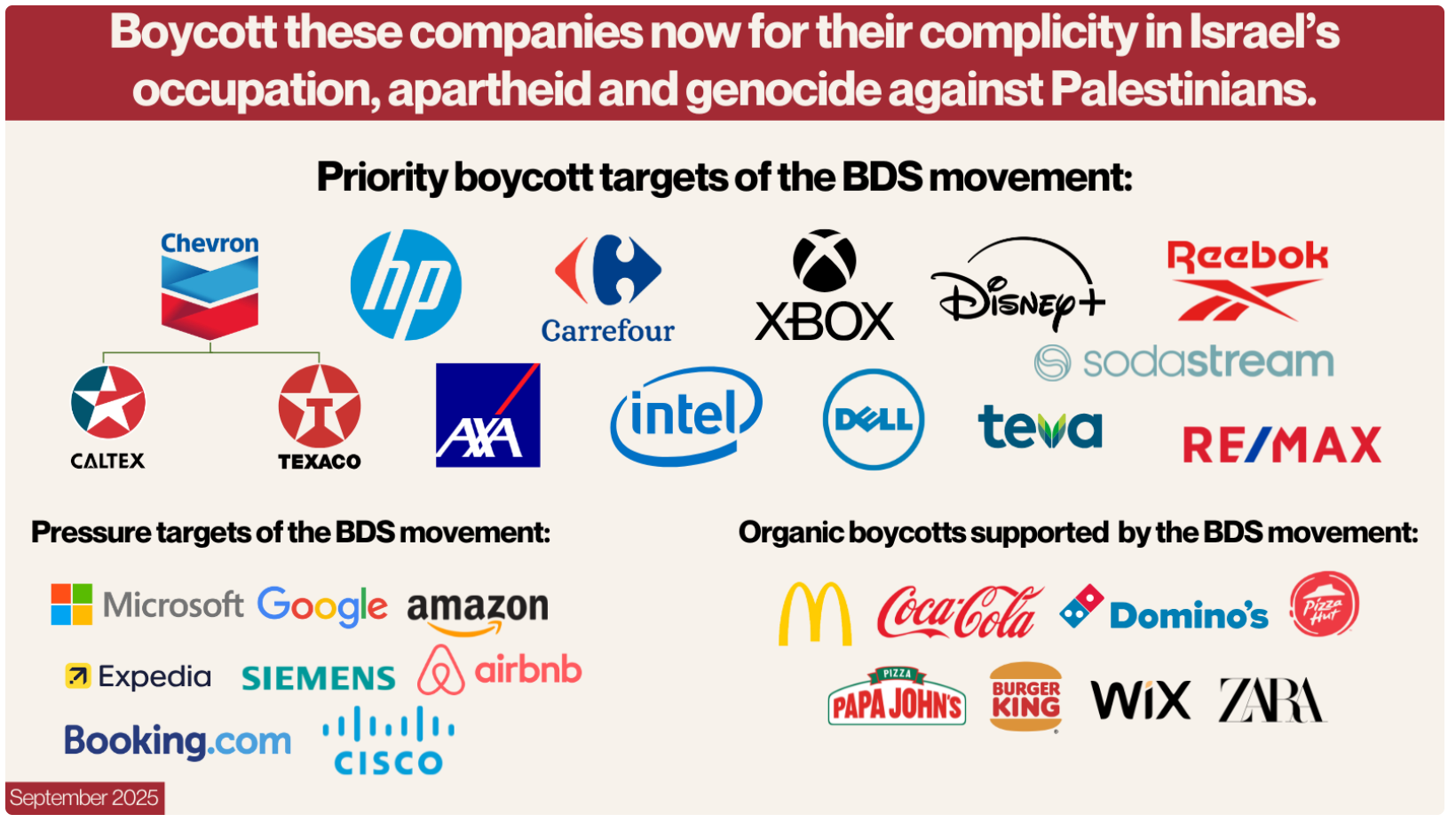
"Israel is occupying and colonizing Palestinian land, discriminating against Palestinian citizens of Israel, and denying Palestinian refugees the right to return to their homes."
The above passage was from the BDS website and could easily fit in to the context of the Genocide of Indigenous Americans and the South African Apartheid.
" _______ is occupying and colonising _______ land, discriminating against _______ and denying _______ refugees the right to return to their homes."
The South African anti-apartheid movement lasted 46 years. The U.S. originally supported the Apartheid until pressure domestically from activists during the Civil Rights era of the 60s and eventually internationally shifted their tone to condemnation.
Thanksgiving is a cover for Indigenous Genocide. Hundreds of years later people are calling for "Land Back!"
All of these are rooted in capitalistic interest.
This is not an unfamiliar pattern and will be a multi-generational fight.
Anti-Consumerism Is Resistance
Consumerism, as in retail therapy is a part of my every day vocabulary. As in my stuff is an extension of who I am. As in my freedom is evident in the option to buy whatever I want in whatever color I want if I work hard enough to earn the capital to do so.
We are a country defined by our stuff.
It is impossible to detach consumerism from capitalism and capitalism from oppression because capitalism relies on oppression. It is not a result, it is embedded in the structure. If temporal spending shifts are the new trend, scheduled economic blackouts are controlled opposition.
There needs to be a culture shift.
"The master's tools will never dismantle the master's house," -Audre Lorde
Buy less.
Buy second hand.
Buy local.
Ditch brand loyalty.
Resist capitalist propaganda.
Trade & barter.
Give experiences not material.
Nurture your communities & if you don't have one yet, seek spaces that proudly display rainbow flags, BLM signs, call for Land Back, where I.C.E. melts, relationships aren't transactional & it's okay to be weird.
Weaving the World We Wish to See
In what many are calling late-stage capitalism, community care is a vital form of resistance. Folks in the Central Valley are doing just that.
We spoke to Rashida (she/her), a member of a local grassroots group called Share Fresno. Like many folx, she had been looking for ways to get more involved in community when she found Share Fresno.
“I wanted to get involved right away and wanted to volunteer especially since I've been looking for like a pretty much a buy-nothing group, like-minded group of people to like trade and barter with, share skills, food, clothes, all of that," she told uSpark.
Share Fresno is a mutual aid network which Rashida described as "a community of people voluntarily sharing resources and skills to create a safety net for each other...something that's mutually beneficial that people can both give to when they're able and take from when they need.”
Last Saturday, November 22nd, they hosted their second "Share Fest", a bartering event, "to create an opportunity for no buying or selling," as an alternative to Black Friday shopping.
"We encourage folks to bring items to share that can be used for holiday gifting. If you have stuff from last season, or maybe got some stuff as a gift that wasn’t your style, here is your chance to find a new home for it," they said on their Instagram.
“You shouldn't have to get to that point before you're helped, and sometimes — at least for me — that's what it feels like with the government...Your community, your family, your friends are there to help you and you helping them when you're able to as well.”
If you missed this Share Fest, keep an eye out for the next one on their Instagram or sign up for their email list.
Support Local Businesses
Of course we do have wants and needs that may not always be fulfilled by bartering or sharing (yet). Rashida's advice for those looking to ditch corporations beyond Blackout Friday: makes lists of items you buy, start with necessities, identify local stores that carry the items, over time add to the lists moving toward supporting local economy and relying "less on corporations and the government to be able to get our needs met.”
“Start small and you don't have to be perfect. The goal is not perfection… it's just doing your best and being a better version of yourself,” Rashida said.
Community Recommendations
“If you're in the Tower District area, some of my favorites to shop at is Tower Health. There’s Piamontes and Moto Delicatessen across from Fresno High School...Sam's Deli — places where you can switch over to buying your deli meats, breads, cheeses,” Rashida shared.
Community members submitted their local faves via Instagram. This year we organized the list by location to be public transportation friendly, time efficient, and to avoid holiday traffic.
Blackstone
Allard’s Art Supply, Picture Framing, & Fine Pens
Vineyard Farmers Market
Mad Monk
Van Ness Village
@sourmilkshopfresno
@summerfoxtowerdistrict
@rootaccesshackerspace
@micafesito.fresno
Chinatown
@yoshinowvintage
Yoshi World
@judgingbythecover.books
Tower District
Free Bird Co. Records & Apparel
@bensmokinbbq.tower
@raginrecordsfresno
@towerhealth1130
Neighborhood Thrift
Black Marketplace Vintage Boutique
@bebeosvintage
@palmandoliveantiques
Bookish
Hart’s Haven
Color Me Chula
@veni.vidi.vici.fresno
@goldsteinsbeer
@the.howlin.wolf.fresno
@bookish520
@towerblendz
@electricolivebar
@strummersfresno
@tower_theatre
@morenamiabakerycafe
Downtown
@bad.kids.club
@plantxslayer
@createstudiofresno
@fulton55fresno
@summonedclothing
@santilunashop
Fig/Fresno High
Gazebo Gardens
Petunia’s Place
@moto_fresno
Tower District Records
eclecticHOUSE Fresno
Visalia
North Fresno
Horn Photo
Reclaimed Mountain Goods
Professor Toy
Fort Washington Farmers Market
Crazy Squirrel
Book Nook
Clovis
Blue Shell
A Book Barn
Selma
Selma Flea Market
Shaw Avenue
@re_lovedvintage
@lmtal_giftshop (Barstow)
Online Order Central Valley Makers
Manchester Mall
@tropical__shades559
@therecordshopfresno
@le_bellarose
Vendor Fairs (Put them in your calendar!!)
Bartering Events
Clothing Swaps
Reclaimed Mountain Goods
Turlock
Merced
Fresno Pop Ups (follow them for locations)
@girlypop__shop
@garcias_foodies_
@getcookingcatering_
@karess_creations
Blackout Friday. Small Business Everyday.
Blackout Friday is an entry point into the real resistance. Long term change happens when we divest from exploitative systems and build alternatives. Mutual aid networks, supporting local businesses, barter economies, and communities that care for one another are some ways to work toward a word where people come before profit. As Rashida explained:
“Definitely not having to do anything on your own and getting out of this individualistic culture and going more for the community and collective. What comes to mind for me is collective growth, community growth. Expanding into neighboring little towns or cities… making sure needs in the smaller communities are met as well. I think what people need right now will look different even a year from now, and I think we’ll continue to work together to meet those needs. It's becoming clear that we can't really rely on our government or these corporations to have our best interest in mind, so being able to do that for ourselves and each other — I feel like that's the way to get our needs met.”
Anti-consumerism is resistance. Buy less. Buy local. Trade and barter. Nurture your communities.
"Without community there is no liberation."- Audre Lorde.

